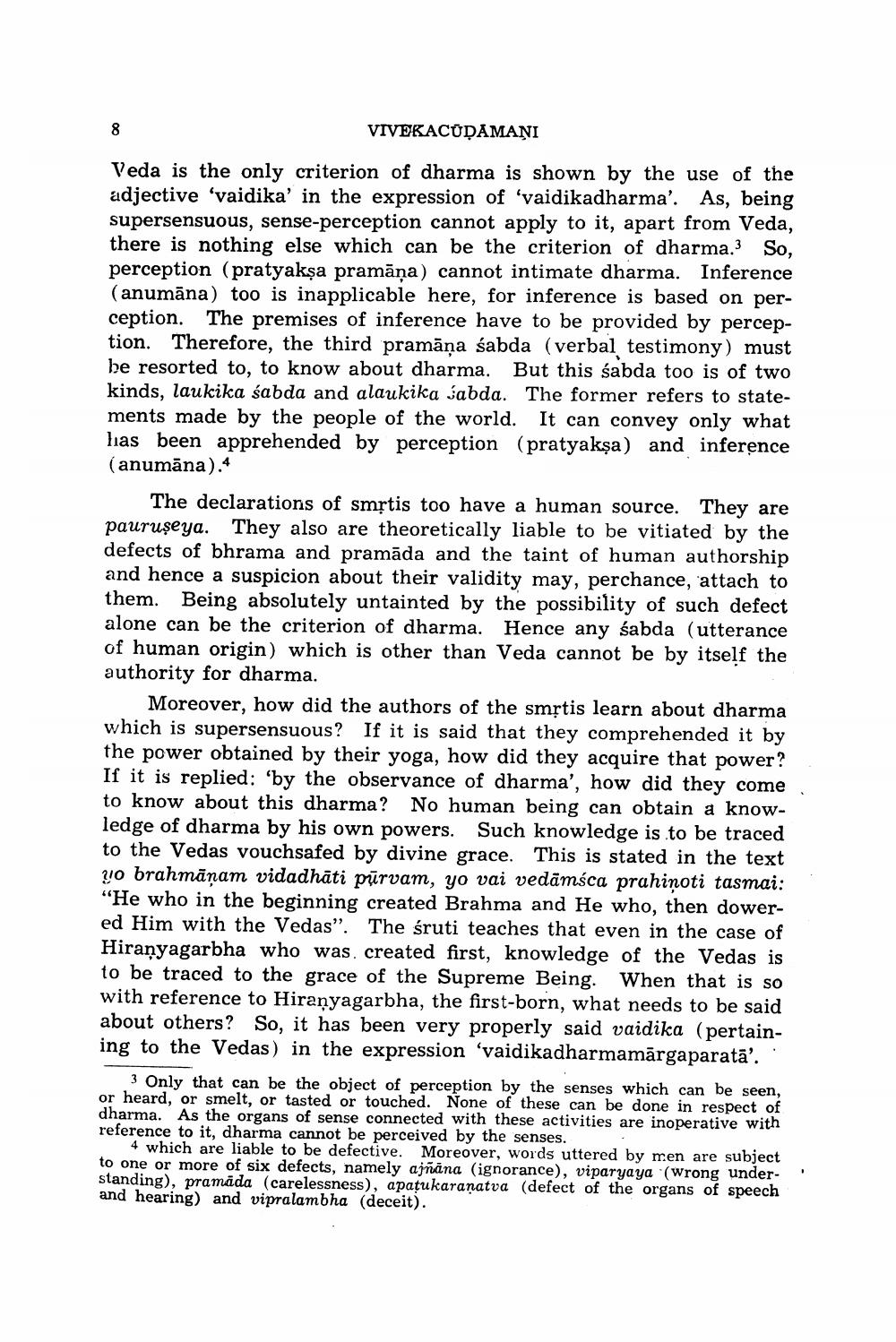________________
VIVEKACUDAMAŅI
Veda is the only criterion of dharma is shown by the use of the adjective 'vaidika' in the expression of 'vaidikadharma'. As, being supersensuous, sense-perception cannot apply to it, apart from Veda, there is nothing else which can be the criterion of dharma. So, perception (pratyakşa pramāņa) cannot intimate dharma. Inference (anumāna) too is inapplicable here, for inference is based on perception. The premises of inference have to be provided by perception. Therefore, the third pramāna sabda (verbal testimony) must be resorted to, to know about dharma. But this sabda too is of two kinds, laukika sabda and alaukika sabda. The former refers to statements made by the people of the world. It can convey only what has been apprehended by perception (pratyakşa) and inference (anumāna).4
The declarations of smrtis too have a human source. They are paurușeya. They also are theoretically liable to be vitiated by the defects of bhrama and pramāda and the taint of human authorship and hence a suspicion about their validity may, perchance, 'attach to them. Being absolutely untainted by the possibility of such defect alone can be the criterion of dharma. Hence any śabda (utterance of human origin) which is other than Veda cannot be by itself the authority for dharma.
Moreover, how did the authors of the smrtis learn about dharma which is supersensuous? If it is said that they comprehended it by the power obtained by their yoga, how did they acquire that power? If it is replied: 'by the observance of dharma', how did they come to know about this dharma? No human being can obtain a knowledge of dharma by his own powers. Such knowledge is to be traced to the Vedas vouchsafed by divine grace. This is stated in the text yo brahmāņam vidadhāti pūrvam, yo vai vedāmáca prahiņoti tasmai: "He who in the beginning created Brahma and He who, then dowered Him with the Vedas”. The śruti teaches that even in the case of Hiranyagarbha who was created first, knowledge of the Vedas is to be traced to the grace of the Supreme Being. When that is so with reference to Hiranyagarbha, the first-born, what needs to be said about others? So, it has been very properly said vaidika (pertaining to the Vedas) in the expression 'vaidikadharmamārgaparata'.
3 Only that can be the object of perception by the senses which can be seen, or heard, or smelt, or tasted or touched. None of these can be done in respect of dharma. As the organs of sense connected with these activities are inoperative with reference to it, dharma cannot be perceived by the senses.
4 which are liable to be defective. Moreover, words uttered by men are subject to one or more of six defects, namely ajñāna (ignorance), viparyaya (Wrong understanding), pramäda (carelessness), apatukaranatva (defect of the organs of speech and hearing) and vipralambha (deceit).




